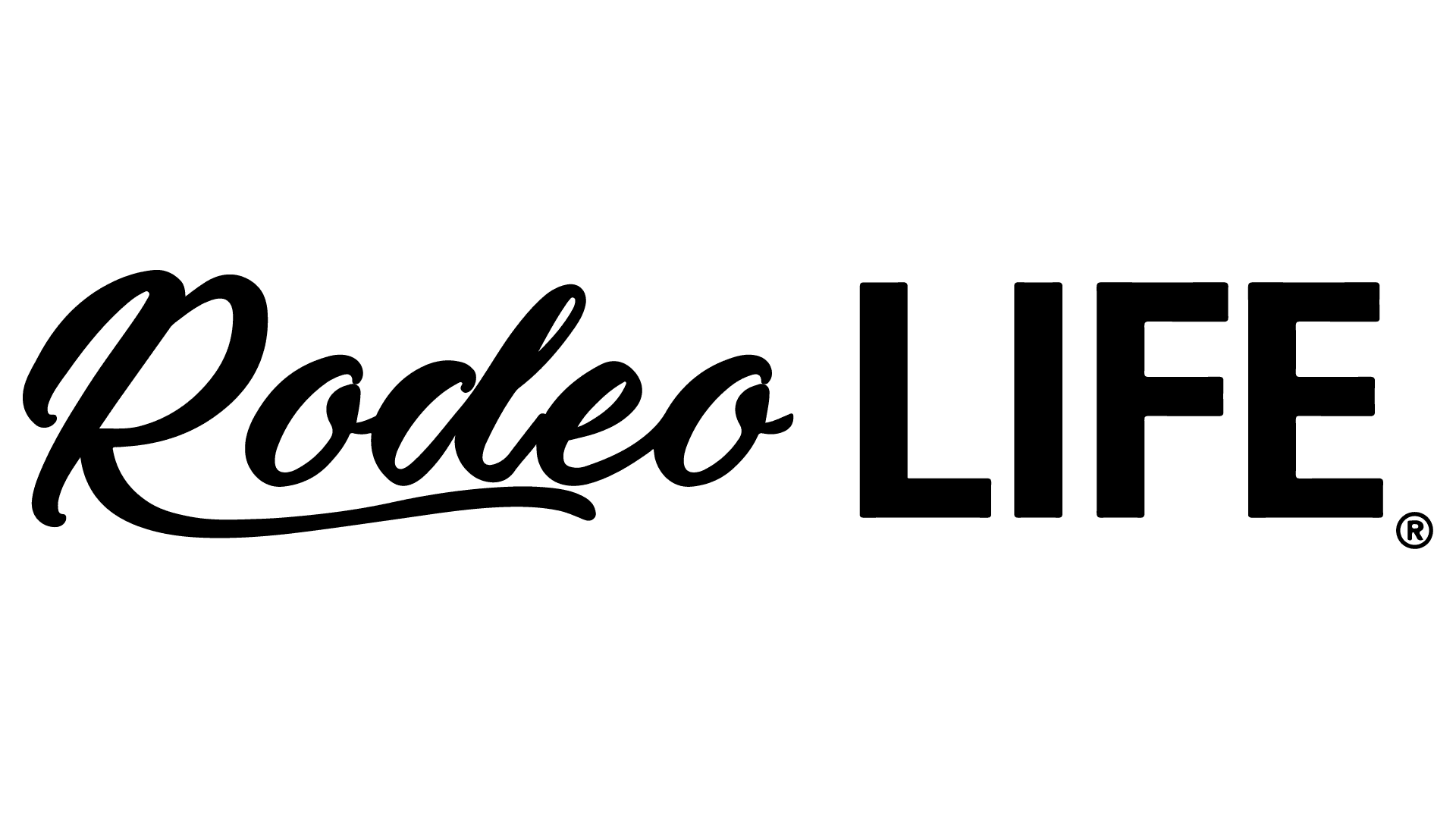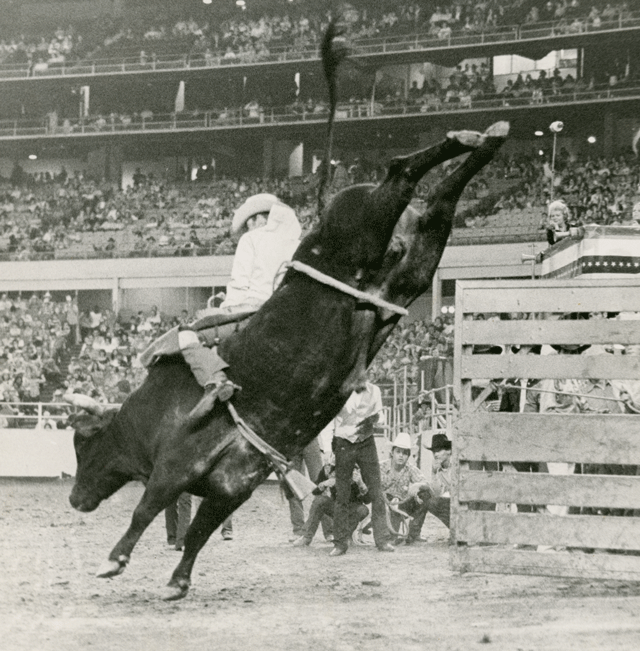Ronnie Bowman was part of the pro rodeo bull riding scene in the 1960s and 70s. The Durant, Okla. cowboy qualified for the National Finals Rodeo four years, never going to more than 55 or 60 rodeos each year, and rarely going far from home to compete. He was born in 1941, the son of Paul and Leota Bowman. His dad was a calf roper who made sure his sons always had horses and calves to rope. Living close to Southeastern Oklahoma State University (SOSU) in Durant, college boys were always on hand for practice sessions with the Bowmans.
When he was a senior in high school, Ronnie started riding bulls. He graduated high school in 1959 and went to SOSU. The college didn’t have a National Intercollegiate Rodeo Association team, but Ronnie competed collegiately in both of his events.
During the summers, he and buddies would jump into a vehicle and be gone each weekend, traveling as far as Nebraska and winning money. Not one to brag, Ronnie won his share of the checks. “We got to beating them a little bit,” he said. One summer, he and a friend worked on a ranch south of Valentine, Neb., in the Sandhills. They would put up hay Monday through Thursday noon, then hit the rodeo road, competing Thursday, Friday, Saturday and Sunday afternoon before heading back to the hayfield on Monday morning.
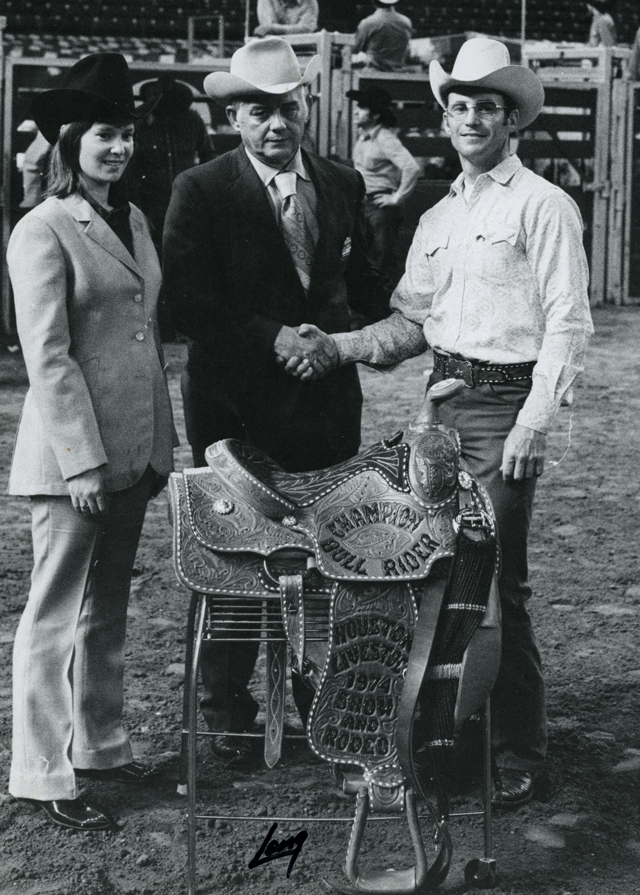
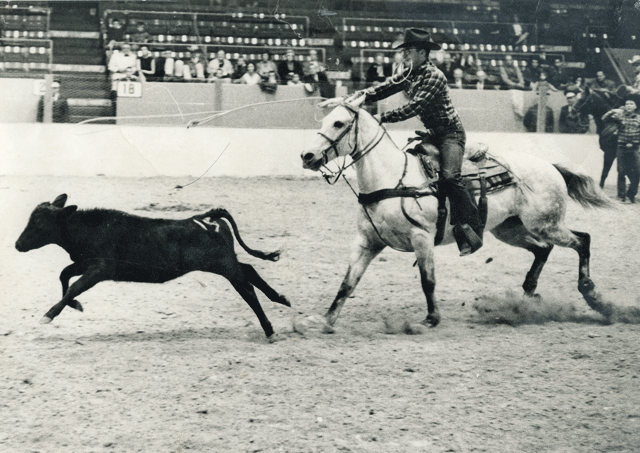
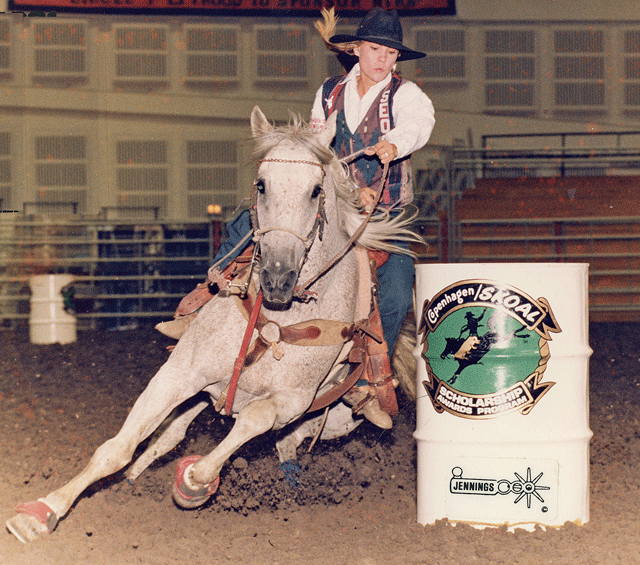
After graduation from SOSU in 1964, he spent six months in the Army Reserve. “That sure did interfere with my rodeoing,” he said, of the weekends he had to spend in training. Often they would let him make up training in advance.
Ronnie competed in International Rodeo Association events (the forerunner of the International Pro Rodeo Association), and in 1965, got his Rodeo Cowboys Association (the predecessor to the Pro Rodeo Cowboys Association) membership. He was roping calves and riding bulls, when two of his good calf horses died. One went down due to colic and the second one was struck by lightning. He bought another horse, and after placing at three rodeos, the horse was paid for. Ronnie came home, put the horse out to pasture, and went on with his bull riding. “I didn’t rope much after that,” he said.
He often traveled with world champion bull rider Freckles Brown, who was towards the end of his career. For five years, they hit the road together. He also traveled with Spanky Brown, Randy Majors, and Benny Holt. Benny, from the Durant area, never rodeoed much but rode really well, Ronnie said.
Ronnie qualified for the National Finals Rodeo the first year he had his membership, 1965, and three more times: 1967, ’69, and ’70. In ’66, 68 and 74, he was never more than $300 from making it. He rodeoed close to home, never straying far except for three or four weeks in the summer, when he’d go real hard. “I’d get in with Freckles and we’d go to Cheyenne, Albuquerque, Omaha, Pine Bluff, Ark., and back to Oklahoma City,” he remembered. The money wasn’t as good at the NFR as it is now, and he didn’t have the inclination to travel so hard. “A fella would have to go hard to get (to the NFR) now.”
Even with his low rodeo count, he still won the big shows. He won Houston in 1974, taking home a check for $3,700. He won Odessa and Albuquerque, and out of eight trips to Cheyenne, he placed six of those times. He won a short round in Ft. Worth and competed at the American Royal in Kansas City in the calf roping and the bull riding three times, winning the all-around twice. “Some of the good big ones were awful good to me,” he said. When other bull riders were riding at 100 rodeos a year, he was doing a bit more than half of that, and still making it into the top fifteen in the world.
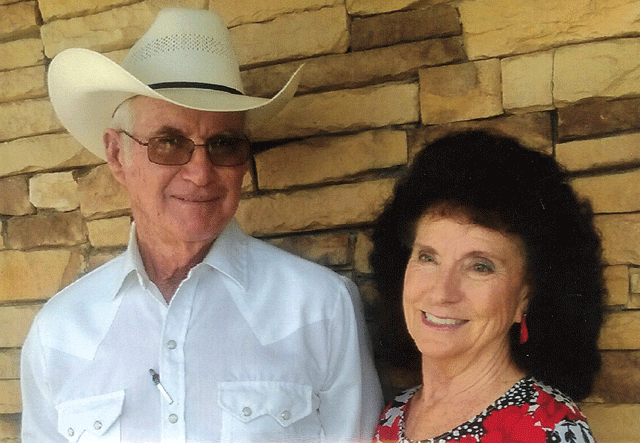
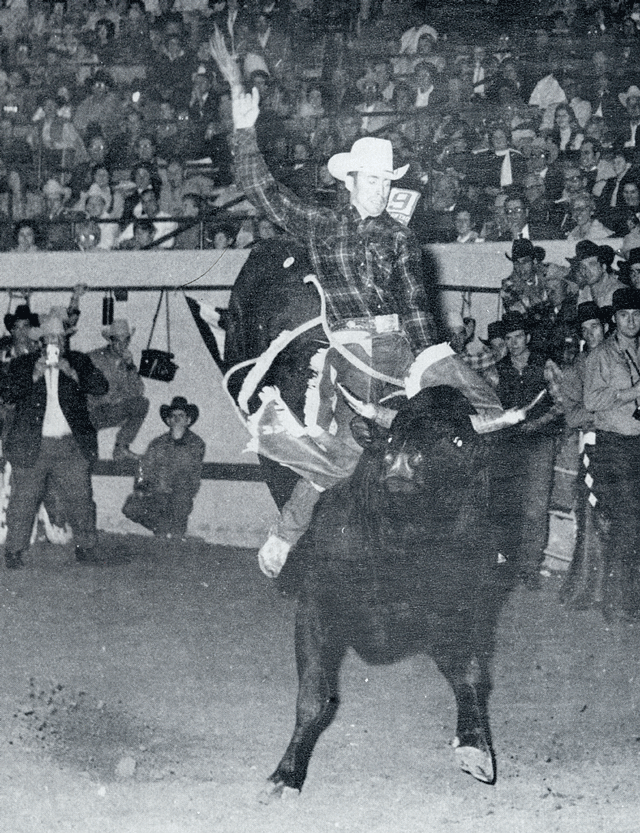
For a while, he bought and sold bucking bulls. His dad had bought some and used them for practice bulls with Ronnie and the college boys, and Ronnie kept that business going. They were sale barn bulls, good practice bulls, but as Ronnie culled the herd, he “was the victim on most of them,” he said. He sold several bulls that went on to do well in the IPRA and the PRCA. Beutler and Son bought a dozen of his bulls, with two of them making the National Finals Rodeo. He also sold No. 77, Sunset Strip, to J.C. Ward. The bull was the 1970 IPRA Bull of the Year and was only ridden twice in his career.
He and Freckles also put on bull riding schools in southeastern Oklahoma, commenting that if they’d have worked that hard at anything else, they’d be rich.
In 1970, he won a prestigious award at the NFR: the George Paul “Great Guy” Memorial. George Paul had been a bull rider, killed in a plane crash that year at the age of 23. It was an award voted on by his peers, going to the bull rider with “character, personality, appearance, congeniality, ability, rodeo image, personality, conduct, and most likely to succeed.” The four-foot tall trophy still sits in his house today.
Ronnie was careful with his winnings, putting them away in savings. In 1977, when he figured his income tax and didn’t make a profit, it was time to quit. The next two years, he only entered July Fourth rodeos. “Most of those boys spent all they could make,” he said. “I used it for a job. I bought and paid for a five-hundred acre place.”
He married his wife Judy in 1965. While both were students at SOSU, a mutual friend introduced them while Judy was working in the library. She taught school and during the summers, traveled with him.
He and Judy raised two daughters, Marci Jackson and Jeana Holt. The girls were good hands, “pretty tough,” their dad said, rodeoing through high school. Both girls qualified for the National High School Finals Rodeo, each in four events; Jeana won the goat tying and the all-around titles in high school rodeo.
His worst injury was a broken jaw, an injury occurring on the last bull at the 1969 NFR.
Ronnie got on some memorable bulls throughout his career, some of them who are just memories but at the time were “bulls that everybody knew back then,” he remembered. One of them was No. 107 of Steiner’s. The bull went seven and a half years unridden, but Ronnie covered him four times. “The first time I drew him he like to threw me out of the arena.” One of those times, was in Belton, Texas. An insurance company was giving a one hundred dollar bill to the high marked ride. Ronnie rode No. 107 and got the money.
He rode No. R-100 of Beutler and Son’s, and Tex M of Hoss Inman’s. And he won a go-round in Ft. Worth on Billy Minnick’s V61, the 1970 RCA Bucking Bull of the Year.
He and Judy enjoy life on their place near Durant, raising black Simmentals and enjoying their granddaughter and grandson. He’s a humble person, not talking about his rodeo success. But he’d do it all over again, if he could. “I got along pretty good with it,” he said. In 2017, he was inducted into the SOSU Rodeo Hall of Fame.
